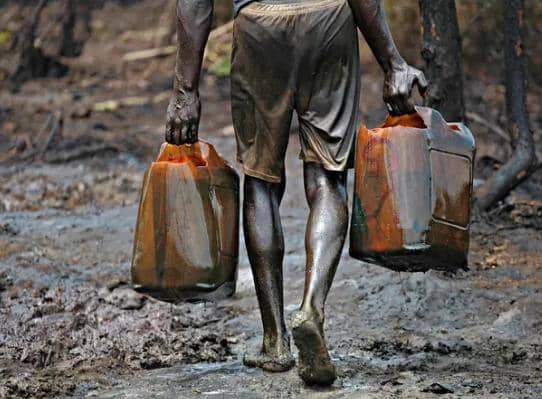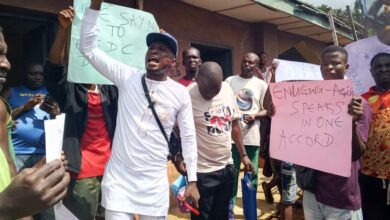Itsekiri leaders blast oil theft cartels, urge FG to ensure fairness in Niger Delta

(DDM) – The Warri Indigenous Peoples Movement (WIPM) has called on the Federal Government to confront large-scale crude oil theft in the Niger Delta, warning that the menace continues to sabotage national revenue and deepen regional inequality.
Diaspora Digital Media (DDM) gathered that the group made its position known at a press briefing in Abuja, where its leaders also distanced themselves from a recent protest demanding the removal of Nigerian National Petroleum Company Limited (NNPCL) upstream boss, Bayo Ojulari.
According to WIPM General Secretary Monoyo Edon, the Itsekiri people are committed to peace, fairness, and development, not political division or selfish agendas.
He stressed that linking the group to anti-Ojulari demonstrations was misleading and untrue.
Focus on oil cartels, not petty bunkerers
WIPM Chairman Kingsley Tenumah urged the government to focus its anti-theft drive on powerful oil cartels capable of moving shiploads of crude oil across international waters.
He argued that targeting small-time creek-level bunkerers while ignoring the real industry saboteurs amounts to fighting symptoms while leaving the disease untouched.
Tenumah said such cartels operate with sophistication and political backing, draining billions of dollars that should strengthen Nigeria’s economy.
Itsekiri oil contribution, unfair returns
The WIPM chairman highlighted that Itsekiri lands host no fewer than 70 flow stations, accounting for an estimated 33 percent of Nigeria’s daily oil production.
Despite this massive contribution, he said, the people continue to suffer neglect in the distribution of jobs, contracts, and development opportunities tied to the oil industry.
According to him, the unfair allocation of benefits has fueled frustration and underdevelopment in host communities, making equity a central demand.
Call for fairness in contracts
Backing this call, Chief Priest Roland Oti-Yomere said that Ojulari’s anti-bunkering campaign should be supported, but emphasized the urgent need for fairness in awarding pipeline surveillance and protection contracts.
He noted that inclusive engagement of local stakeholders would reduce tensions and improve security of oil facilities in the Niger Delta.
WIPM leaders added that only fair participation of indigenous communities can sustain peace and protect the country’s oil wealth.
Background of the crisis
Nigeria loses billions of dollars annually to crude oil theft, which has become one of the biggest threats to Africa’s largest economy.
The Niger Delta, home to the nation’s oil wealth, has long suffered from environmental degradation, poverty, and insecurity fueled by disputes over control of resources.
Successive governments have launched anti-bunkering campaigns, but critics say high-level cartels often evade accountability, while smaller players bear the brunt of arrests and prosecutions.
The Itsekiri, one of the dominant ethnic groups in Delta State, have consistently demanded recognition of their stake in Nigeria’s oil economy, stressing that they bear the environmental burden of exploration without receiving proportional benefits.
National implications
Analysts say the WIPM’s intervention reflects growing frustration among oil-producing communities that feel shortchanged in Nigeria’s resource governance.
They argue that if the government truly wants to end oil theft, it must address structural inequities, confront powerful cartels, and strengthen transparency in oil operations.
Failure to do so, they warn, risks further alienating Niger Delta communities whose cooperation remains essential for stability and production.
For now, the Itsekiri group has reaffirmed its commitment to unity and fairness, while putting the Federal Government on notice that the struggle for equity in oil wealth distribution is far from over.
Post Views: 13





